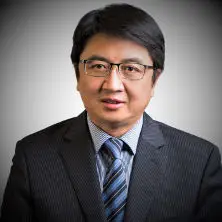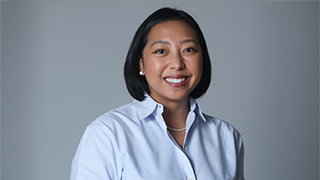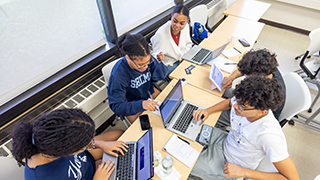Talking Again: U.S. and Chinese Thought Leaders Search for Common Ground - Seton Hall University
Thursday, September 3, 2020

"We are extremely grateful for the support Seton Hall has received from the Luce Foundation for the work being done under the leadership of Dr. Wang and the Center for Peace and Conflict Studies," explained Courtney Smith, Ph.D., acting dean of the School of Diplomacy. "The pandemic initiative, along with our ongoing dialogue series focusing on maritime disputes in the South China Sea, have created rare opportunities for American and Chinese thought leaders to work toward mutual understanding and addressing concerns that have an impact globally."
This new series of Luce Dialogues aims to shed light on the Chinese and American views of relations during and after the coronavirus pandemic, identifying points of consensus where they exist and defining conceptual and strategic differences that have hampered cooperation.
The group has met eight times between April and June and plans to resume biweekly meetings in September. A published a report based on the dialogue's findings will follow at the end of 2020.
"The value of this project is mainly that it keeps both sides communicating with each other during a time when we aren’t able to travel and bilateral relations are in bad shape," explains Wang. Because of their work together over the last four years, the group has built a strong foundation that enables frank dialogue. Using a format of closed-door meetings encourages participants to share their ideas freely, says Wang, and measurable goals keeps the work focused on outcomes.
Participants began by examining their own perceptions of U.S. – China relations under the pandemic. Their conversations revealed misconceptions on both sides. Chinese participants, Wang said compared what is happening in the U.S. – the fallout from the Trump presidency, the racial justice movement, and the pandemic – with the cultural revolution in the China. American experts, he said, were able to explain why things are quite different. "You are not able to understand another country by just relying on news and social media reports," notes Wang, which he believes exaggerate what is actually happening.
Participants representing China's major think tanks and universities also considered whether the U.S. and China could cooperate while competing. The group discussed military tensions in the Western Pacific that have escalated during COVID-19 and what might happen after the pandemic recedes. They have taken up the subject of trade wars and the impact of domestic and global recessions on bilateral relations as well as China's and America's evolving policies toward Taiwan and Hong Kong. The group has sought out concrete ways the two countries can cooperate on COVID. They have looked into facilitating PPE supplies from China to the U.S. and zeroed in on the visa problems international students face as they attempt to travel to the U.S. from China.
Wang and his co-leaders have asked tough questions about the lasting impact of recent changes in U.S. – China policy and have provided a historic context for the strategic realignment, particularly since the coronavirus outbreak. Issues related to the U.S. and China are given equal time. The discussion on U.S. domestic matters, for example, was followed by a meeting dedicated to the dynamics of domestic concerns in China and their impact on bilateral relations.
Wang said that the response from participants has been very positive and that representatives understand that bilateral relations are influenced by domestic politics. In these unusual times, he notes "they realize that as a community we need to be more patient and cautious and try to avoid accidents, misjudgments and hope things get better after domestic influences ease."
The project will conclude later this year with a book, which will follow a similar format to the dialogue. Each chapter will take up a different question, answered by both a U.S. and Chinese contributor. Wang hopes that the book – and companion articles – will serve as a signal to government leaders and others that the two countries can communicate and cooperate, even though they may not always agree.
This semester the School of Diplomacy plans to host an event to give students an opportunity to hear from dialogue organizers and learn about the work of the Center of Peace and Conflict Studies.
About the Center for Peace and Conflict Studies
The Center for Peace and Conflict Studies (CPCS) is a creative hub that merges cutting-edge academic research, education programs and practical initiatives that reduce violence, and build more peaceful societies and international relations. The Center promotes interdisciplinary research on a wide range of topics related to peace and conflict with an emphasis on conflict prevention, management, resolution, and post-conflict peace building and reconstruction. The Center is committed to advancing the understanding of social conflict, global peace and conflict issues through multidisciplinary, multilevel, and multicultural approaches. Through the Center's ongoing research projects as well as education and practice activities, faculty, students, alumni and colleagues work together to develop the interdisciplinary field of peace and conflict studies.
Categories: Nation and World






